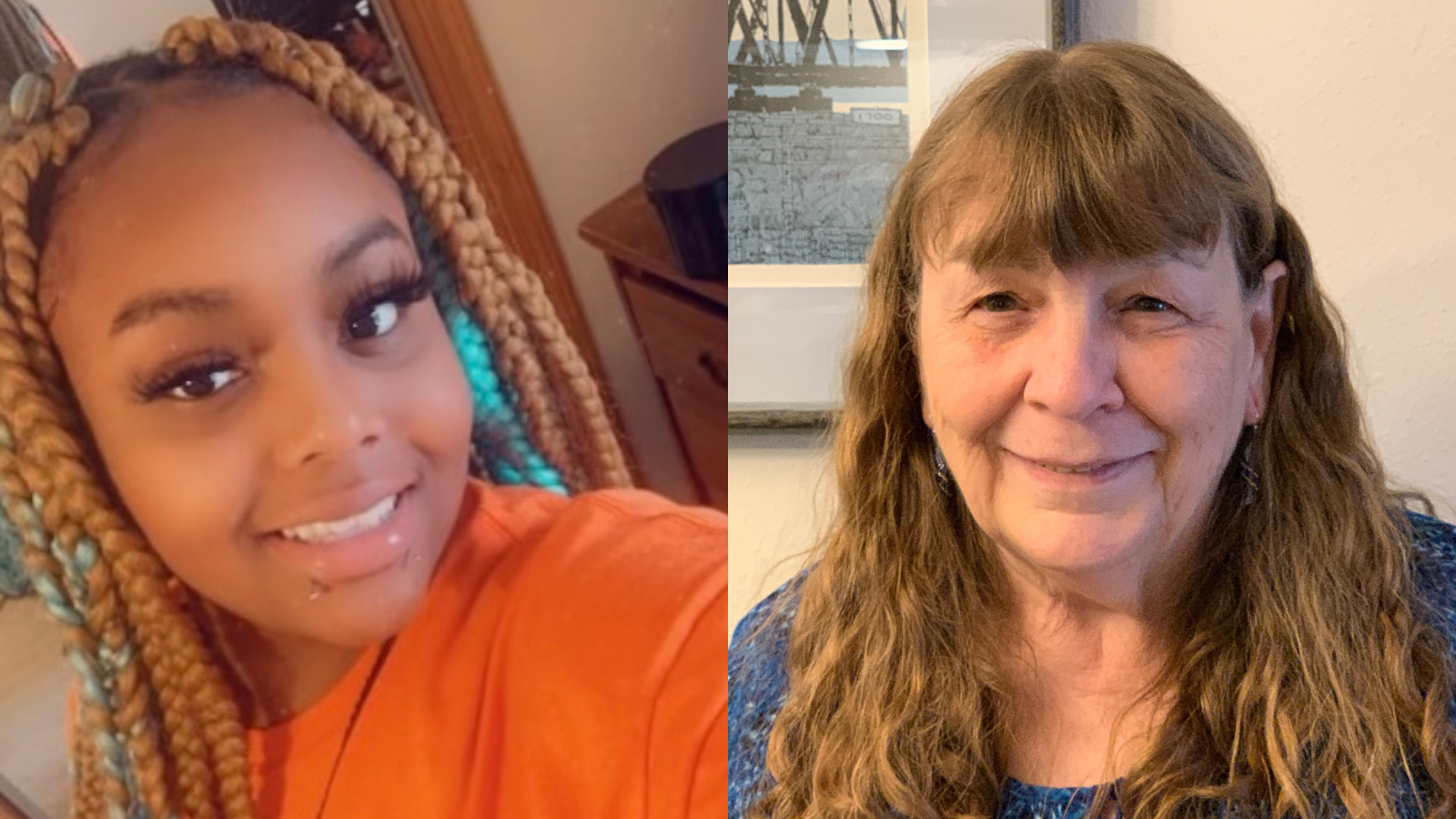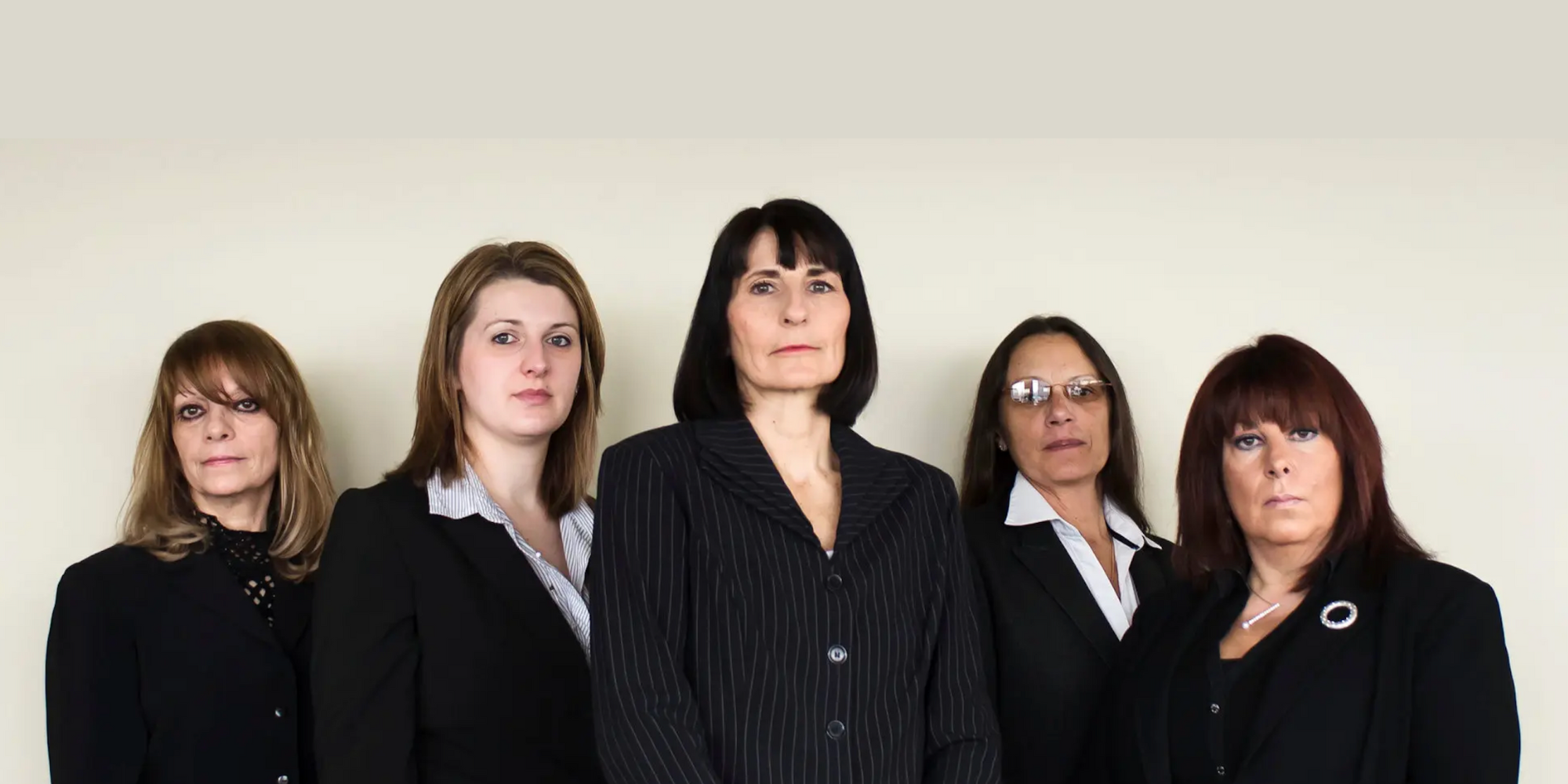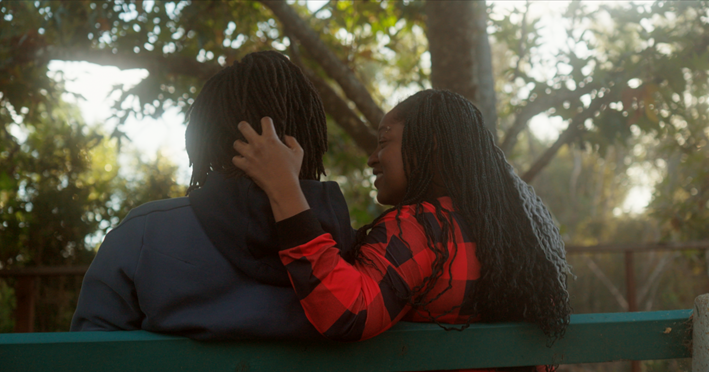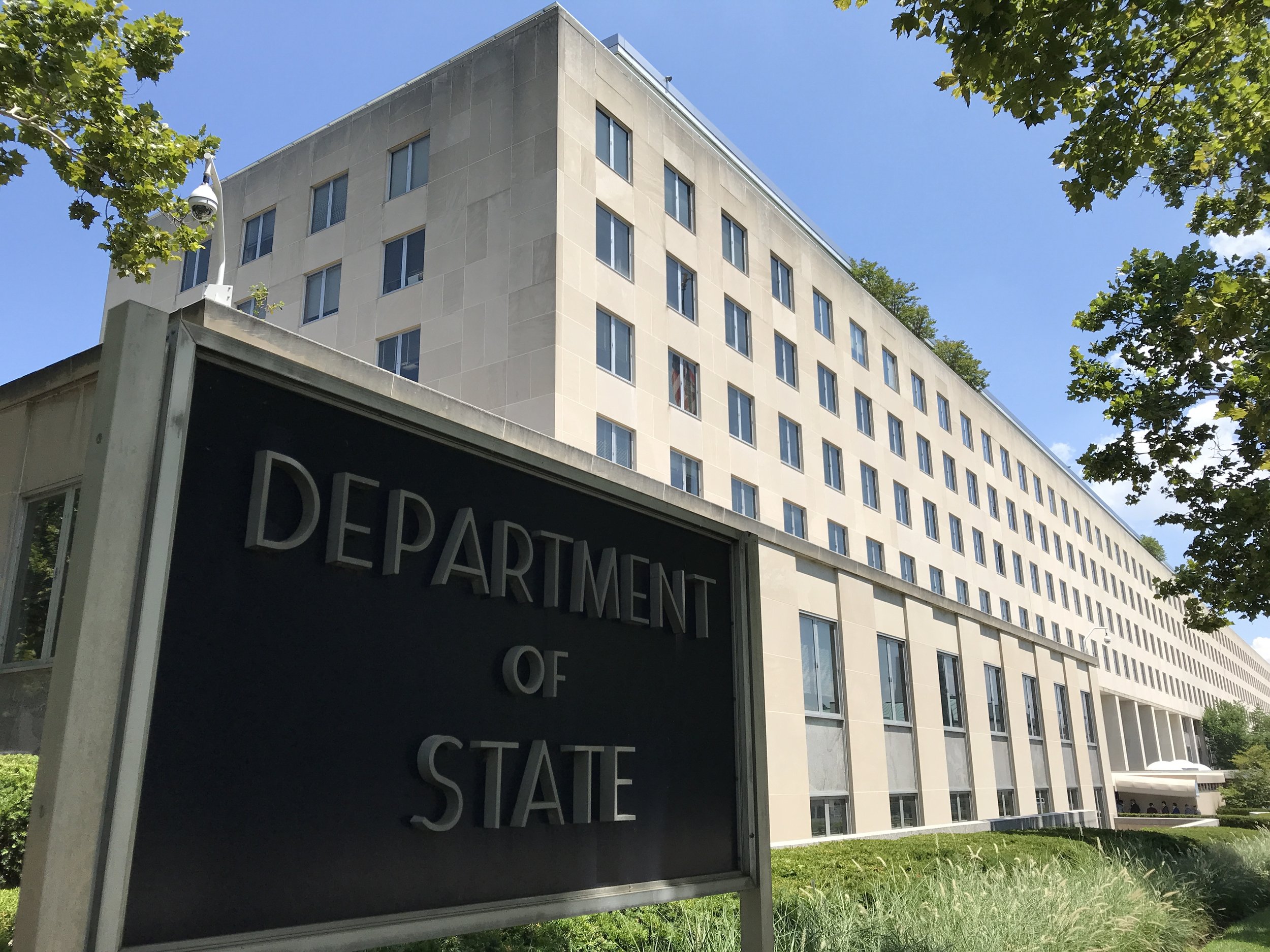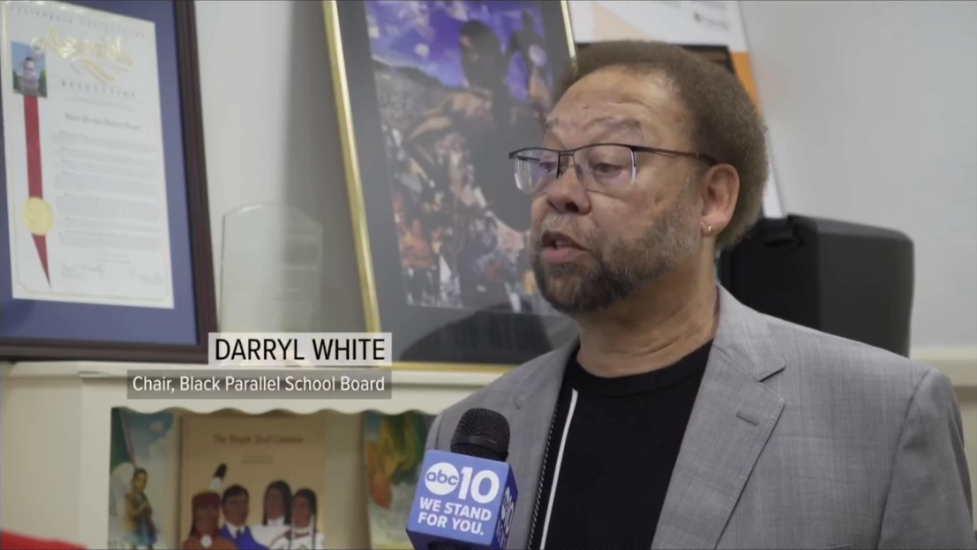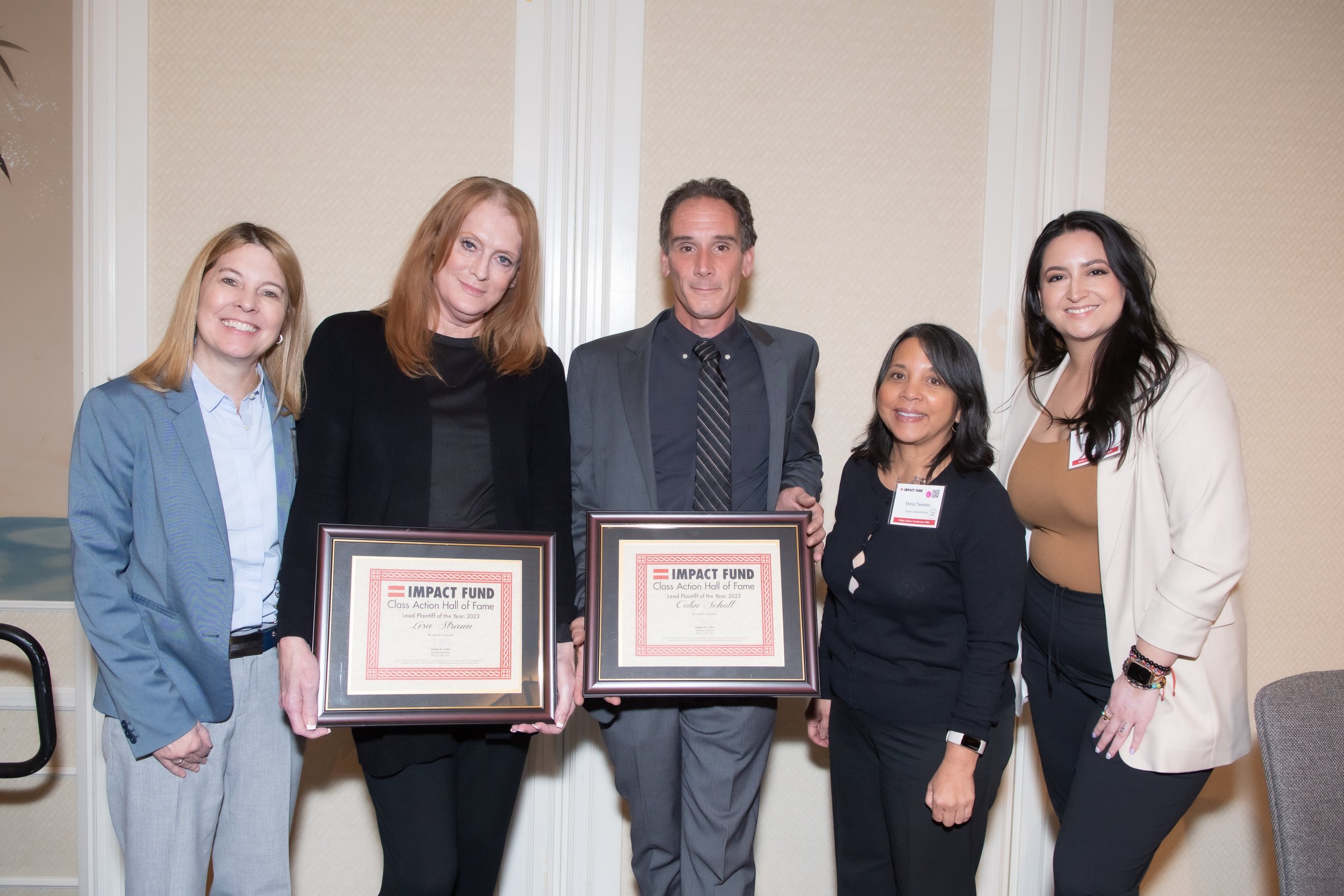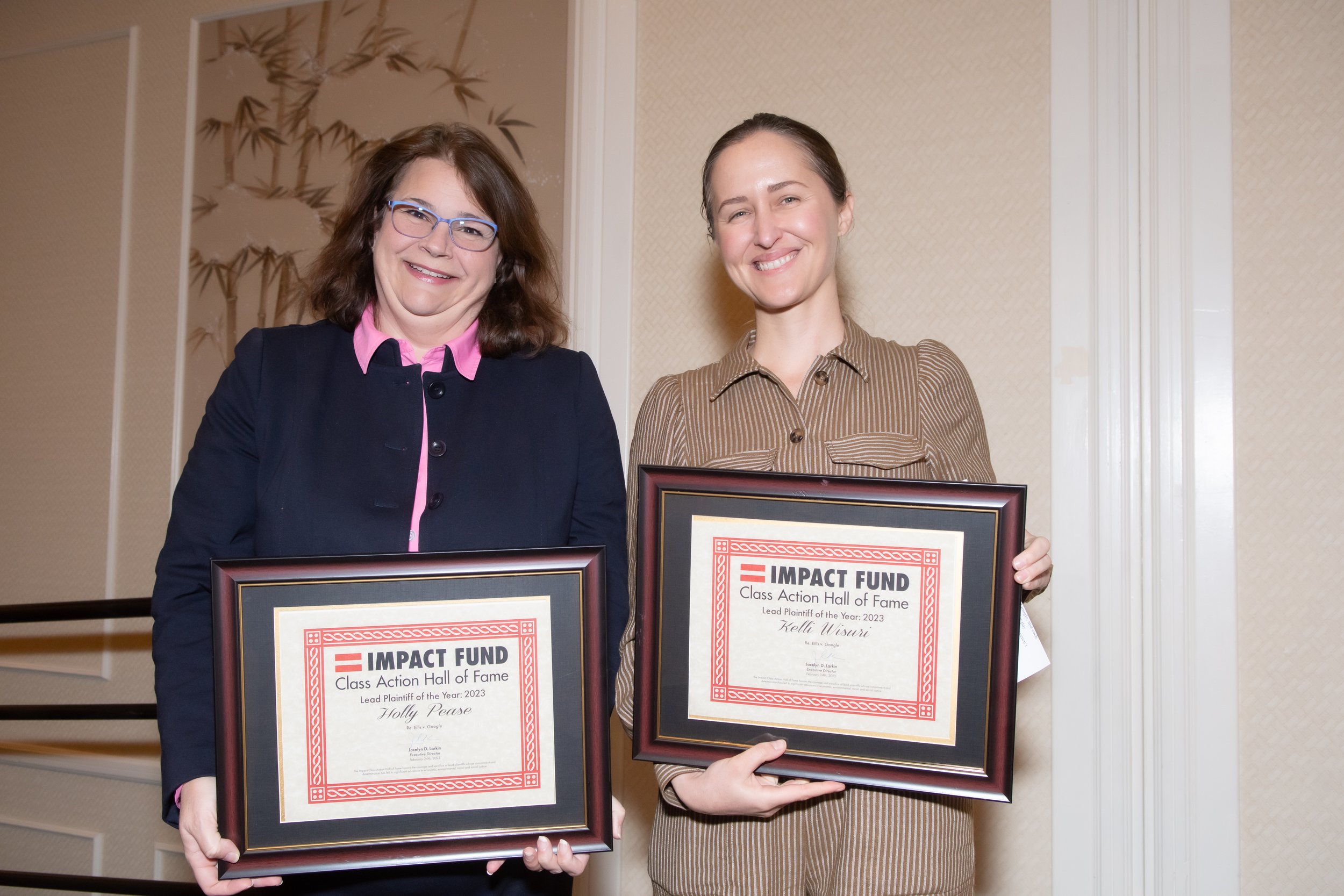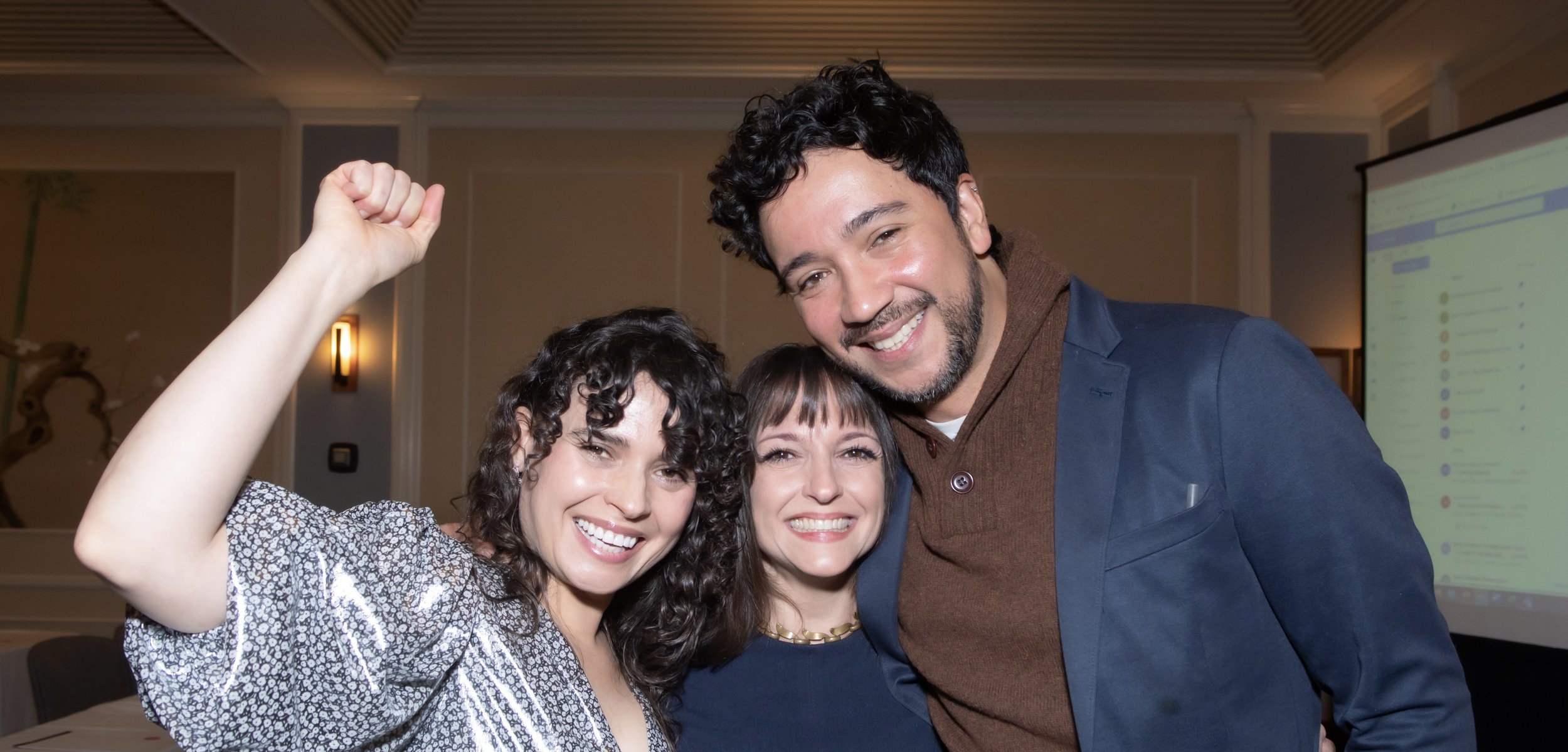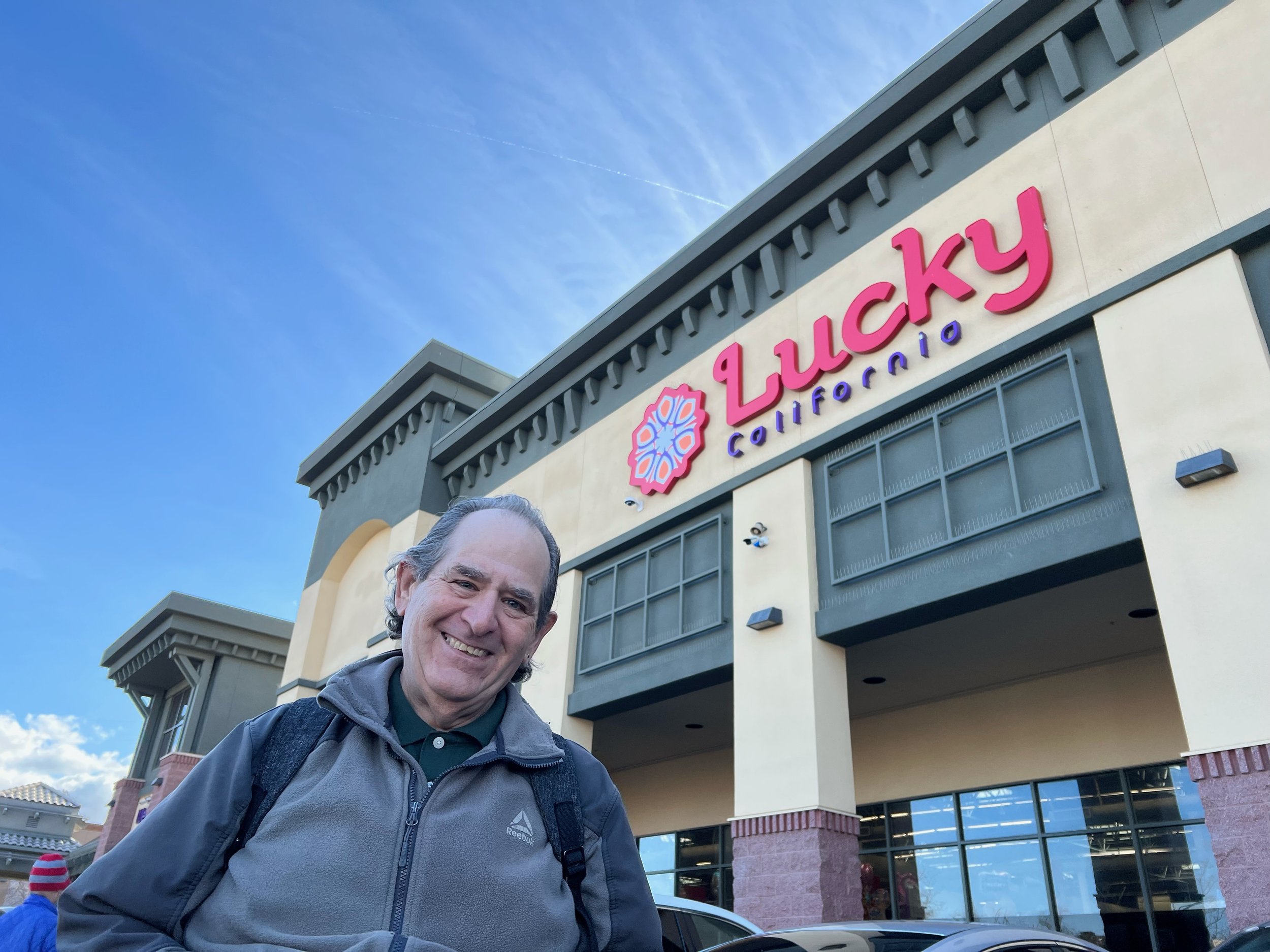Stunned by the Wall Street culture of harassment, one brave woman says "no" and becomes a Class Action Hero.
By Impact Fund Class Action Hall of Fame 2020 Inductee, Renee Amochaev.
“Are you certain you want to pursue a career as a Wall Street Financial Advisor? It’s a notoriously sexist industry, filled with harassment and other inequalities.” I was stunned by this reaction to the news of my new position at Smith Barney which I proudly shared with my successful, female attorney friend whom I admired and looked up to. I thought, surely, she is mistaken? What a quaint, outdated and old fashion notion from her generation!
It was 1999, I was 30 years old, a first generation American born to German immigrants pursuing the American dream. I grew up in northern California during the Equal Rights Amendment Movement in the 1970’s, when powerful images of women marching for equal rights influenced my self-awareness and vision of modern American women. Here I was, living in a small city at the start of a new century and the beginning of an exciting new career with unlimited professional growth and earning potential. I was eager for the opportunity to learn the trade and be accepted in the “boy’s club” although, at the time, I was demure and shy with little understanding of investments, power, Wall Street or the boy’s club. It wasn’t long before my education began, encompassing challenges much greater and time consuming then passing regulatory exams and meeting firm production hurdles, that was the easy part. Navigating my naïveté and shyness in an aggressive male dominated work place focused on power and money as the measure of success was to be my classroom. Sexual harassment, overt or subtle is a given and something I navigate daily. Since a young age I’d become adept and skilled at avoiding and if necessary, confronting it. But the lesson I learned on Wall Street was more complex and subtle than the accustomed sexual predation, it has been a long-lasting lesson of economic assault, obstacles and intimidation.
At the time, I didn’t know what I didn’t know until I noticed similarly situated male colleagues and those with less expertise obtain lucrative financial opportunities I wasn’t offered, but was qualified to receive. At first, I was timid in speaking up and pointing out specific disparities to my supervisor. He humored me by setting me to the task of meeting new hurdles and requirements unique to me, designed only to satisfy his own subjective criteria which were contrary to corporate policy. I thought if I paid my dues and took the “hazing” I would earn his respect. In the end, the more I noticed the disparate treatment and questioned his process the harder he made it. Eventually, under the guise of “helping me” end a partnership, he distributed my share of a 6-year partnership and my own book of business to my male partner. In doing so, he explained, I had the unique opportunity to prove myself by starting over. The situation became so untenable while going to work every day and navigating a formal H.R. complaint that I engaged a private attorney and reached out more than once to the female head of my division at Citigroup, Sallie Krawcheck, appealing to her for help but soon after found myself “encircled by the corporate wagons” and embroiled in a full blown public retaliation situation after a petition was circulated by my supervisor and his staff among my 50 coworkers revealing my compliant, in favor of my supervisor. “If you don’t like it” I was repeatedly told, “Get out or you’re going down.”
““I followed all the rules, did the work, paid my dues and told the truth.”
Instantly, I was shunned by colleagues and became persona non grata amongst management as everyone aligned to stay on their good side. Overnight, I was locked out of my accounts, stripped of my livelihood and my office was relocated to the deep hinterlands of the building where I was isolated from coworkers who no longer acknowledged me, left with only a small box of belongings and my dignity. At that moment I decided I would never, ever let them see me cry. I had two choices, put my tail between my legs and run or stand my ground. I didn’t have anything more to lose; there was only one choice, stand back up. The shock, loss, fear, embarrassment and stress took a toll on my finances, marriage and health. After considerable despair, thought and counsel my-self-doubt and fears turned into channeled anger and motivation for justice. I followed all the rules, did the work, paid my dues and told the truth. My self-worth was in question, not because of the financial loss I suffered but because I felt if I didn’t take a stand and pursue the injustice, I was no better than the perpetrators; my inaction would only perpetuate the problem for future women. I knew if I did nothing, if I didn’t try, I could not face myself in the mirror.
Little by little I found confidence and support in my analysis of what was going on; having the foresight to ensure I gathered proof to back my claims while I documented every conversation. I navigated the maze of internal H.R. investigation after investigation which only lead to more frustration, sabotage, intimidation and other numerous inconsistencies designed to wear me down and give up. The other two senior female advisors out of 28 advisors in my office ultimately joined me in what became the class action litigation against Smith Barney in March 2005. Empowering myself to ask for help compelled them to speak up, not only on my behalf but also for themselves. It was a bonding that bolstered our collective courage to pursue litigation; we were three generations of women on Wall Street sharing similar experiences of financial inequity despite our qualifications. Thanks to our skilled class action legal team, the case garnered international media print and television headlines during an age when digital media was in its infancy, long before social on-line media became mainstream. Television and newspaper headlines, photos and our “live” televised appearance on CNBC’s Street Signs captured enough attention that other female financial advisors at Smith Barney around the country came forward, most in secret, some willing to provide declarations of similar situations while men within the firm and industry also came forward to offer support. I couldn’t believe what was happening; I realized I was not alone.
Renee with her attorney, Kelly Dermody of Lieff Cabraser Heimann and Bernstein.
As the case drew out over the years, it consumed my life. I was in a constant state of fight or flight, trying to rebuild my career at a new firm and absorb crash courses in law at night while prepping and participating in the nuances of my case, all under public and media scrutiny. During some of my darkest hours, moments I was ready to quit everything, random women from across the nation still employed at Smith Barney and other firms found me, contacted me by phone and email late at night and weekends to encourage and beg me not to give up. Most of the women were senior advisors with many years of experience too afraid to share their names or locations for fear of retaliation, but they all shared their gut-wrenching stories of financial inequality. In my darkest depths these women who were complete strangers, many whose name I didn’t know, bolstered me; it was a life defining moment. It made me realize this is not about me, it is much bigger and my role in the moment was to be a voice and conduit in the slow process of change. Once I came to this realization and knew I had hundreds of women behind me, I was no longer afraid. I could look in the mirror and know, without a doubt, I made the right choice. I said goodbye to the shy, naïve afraid person I was and I never looked back.
The case settled in 2008 in the 11th hour at the Federal courthouse, before commencement of trial and included substantial injunctive and monetary relief. It was the beginning of the financial crisis which soon after ended Smith Barney’s existence, complicating and creating new challenges in executing the settlement. For several years during the injunctive period female advisors at the firm continued to reach out to me for enforcement help with the agreement while several other female executives from high-profile Wall Street and tech firms began contacting me for advice before pursuing their own litigation, all while I quietly focused on rebuilding my business during one of the worst economic periods in history. I felt frustrated by the delays and obstacles but remained encouraged that more women felt empowered to utilize the settlement and the momentum it created for others to speak out. I still hear from women in many industries, seeking my guidance and advice.
“I still hear from women in many industries, seeking my guidance and advice.”
It’s been 15 years since then and I am still standing, doing better than ever, in private practice while Smith Barney went down; I do find satisfaction in the irony. I hope my role and the lesson I’ve learned in standing for equality in the workplace continues to inform, inspire and empower other working women and men. I also hope it challenges the few women who are corporate leaders and their male counterparts to look beyond their own self-interests and career aspirations to instead consider taking proactive actions that favors incremental shifts in corporate culture that begin at the top, rather than forced from the bottom.
Promoting equality and opportunity benefits everyone. Perpetuating the outdated, not so quiant status quo still isn’t working in 2020. As I celebrate my 20th year in professional practice, I am glad I didn’t know back then what I know now; I probably would not have gone down this long and hard road. But, knowing what I know now, I am glad I did. It’s been one of my life’s most educational, empowering, meaningful and humbling experiences.





